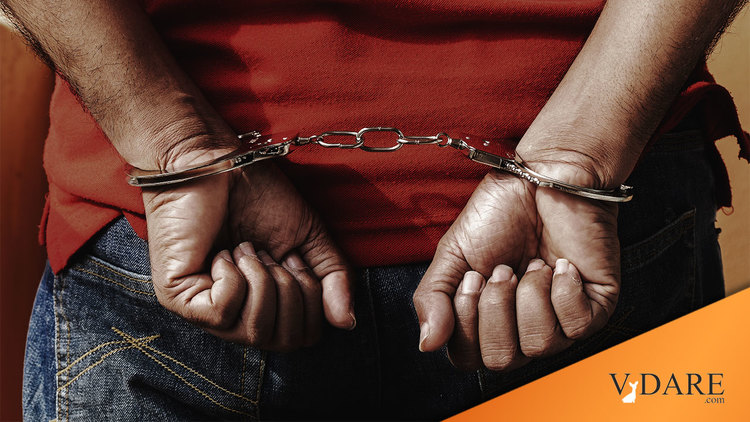


By Paul Kersey
04/14/2021
In honor of the memory of George Floyd, those peddling social justice reform are advocating nonviolent criminal acts such as shoplifting from big box stores should no longer be a criminal offense.
Retailers urged to re-think police calls for low-level crimes after George Floyd’s death, Minneapolis Star-Tribune, April 12, 2021
George Floyd died in police custody after a corner store clerk reported he had used a fake $20 bill, a nonviolent offense so low-level that police don’t usually take people to jail for it. [A Federal crime carrying a potential 20-year sentence, according to the US Code.]
Now, as the trial over his death continues to unfold, criminal justice reform experts and diversity specialists are hoping the case will prompt retailers — from small businesses to major chains — to reassess how they treat Black and other minority customers and how they can handle loss prevention cases more equitably.
Retailers, they point out, are on the front lines of racial justice in their own stores.
“While interactions with the police can be fairly infrequent, everyone shops,” said Cassi Pittman Claytor, a sociology professor at Case Western Reserve University in Cleveland, who has studied racial profiling in retail settings. “When [Black people] are asked about the contexts where they are treated unfairly due to their race … shopping in a store ranks above all other settings, including interactions with the police.”
Since Floyd’s death last May, many retailers have made public promises committing to racial equity. Several companies, including Twin Cities-based Target and Best Buy, have shared their plans to diversify hiring and made financial contributions to Black-owned businesses and organizations focused on fighting inequality.
But some criminal justice reform advocates say retailers need to do more to create and enforce policies to address how racial bias negatively impacts customers.
“I don’t think that they really have dealt with and have been honest about dealing with it,” said Jesse Ross, a local diversity and inclusion consultant who has worked with a range of retailers. “It’s ‘Oh we’re going to put out money,’ and ‘Oh, we’re going to give a couple bonuses’ and all of these things, but we are not addressing the very grassroots-level issues that could probably prevent so many other things like a George Floyd from happening.”
Ross, who is Black, said he has been racially profiled in stores, and he doesn’t think many retailers have transparent complaint processes where they evaluate and respond to reports of customer mistreatment.
“Certainly in loss prevention, there are certain behaviors that look sketchy that you are supposed to look out for or pay attention to, but then there’s also that profiling that we know happens,” Ross said.
In response to community outcry following Floyd’s death, the owner of the Cup Foods store said they would no longer contact police in cases of nonviolent crime, as they did for Floyd’s suspected counterfeit bill.
Raymond Moss, who runs the St. Paul-based Carl Moss Institute that helps young people who have been incarcerated re-enter society, believes more stores need to forgo calling the police for small crimes and change the loss prevention culture among their security officers and staff. Moss worked as a loss prevention officer for large department stores for more than five years when he was younger and now runs his own security company in the Detroit area, in addition to teaching criminal justice college courses online.
Some big-box stores promote making apprehensions, Moss said: “Like you got a board up there, everybody has their name on there and they might set a goal that you need to get four apprehensions for the month. It’s nothing in there to say ‘be a deterrent, let’s deter folks from stealing.’ ”
While security officers are told not to profile people, Moss, who is Black, said he has seen co-workers follow groups of Black shoppers around the store floor. Moss would try to play his two-way radio loud when he got close to somebody he suspected was stealing to scare them into ditching the item. He said he has seen how a minor crime like shoplifting can lead to a life of serious crime.
“Retail is almost like a gateway to other small-type petty crimes,” he said.
When police do become involved, people should be steered to diversion programs with groups that are familiar with working with youth of color, Moss said. Retailers should also phase out using off-duty police officers for store security, he said.
Racial stereotypes that link Black people to criminality lead to excessive surveillance of Black people in stores, despite the fact that shoplifting is a common crime in the general population, Pittman Claytor said. Approximately 1 in 11 Americans have shoplifted, according to the National Association for Shoplifting Prevention.
The end game of Black Lives Matter and affiliated causes is to push to make it illegal to arrest black people who engage in criminal acts.
Thus, the absurdity of the concept of Black-Run America (BRA) has nearly come to fruition.